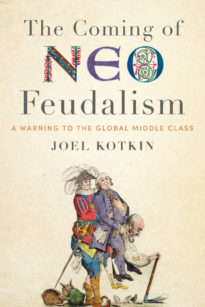An Excerpt from “Pandemics and Pandemonium” in Quillette
Minneapolis and urban centers across America are burning, most directly in response to the brutal killing of a black man by a white Minnesota police officer.
The rage ignited by the death of George Floyd is symptomatic of a profound sense of alienation that has been building for years among millions of poor, working class urbanites.
The already diminished prospects facing such people have only been worsened by the unforeseen onslaught of the COVID-19 pandemic and the policies devised to combat it.
Like earlier pandemics, the virus has devastated poorer communities, where people live in the most crowded housing, are forced to travel on public transport, and work in the most exposed “essential” jobs, most of which are badly paid. Unlike the affluent of Gotham, some 30 percent of whom were able to leave town and work remotely, the working class remained, forced to endure crowded conditions as the disease raged through the city. No surprise then that inhabitants of the impoverished Bronx have suffered nearly twice as many deaths from COVID-19 as those in the more affluent, but denser borough of Manhattan.
This pattern can be observed globally. In Spain, the bulk of infections and reduced incomes are concentrated in poorer areas. Similar disparities can be found in countries as varied as China, Japan, France, and Italy. Even in egalitarian Singapore, infections have risen precipitously among the country’s migrant workers—an underclass who tend to live in crowded dormitories. Similarly, in Los Angeles the poor have died from COVID-19 at four times the rate of the city’s overall population. In both New Orleans and Detroit, the vast majority of fatalities have been among disproportionately impoverished African Americans.
As if this were not already quite bad enough, we are now starting to see the economic consequences of the lockdowns.
In the US, roughly half of all job losses in April were in low-paying fields such as restaurants, hotels, and amusement parks; in contrast information and finance jobs were barely touched.
Almost 40 percent of those Americans making under $40,000 a year have lost their jobs as the wage gains made during the first two years of the Trump administration largely evaporated.
These social divisions are now spreading to developing countries, where the decades-long reduction of poverty is grinding to a halt.
The International Labour Organization believes that 1.6 billion people could lose work as a result of the pandemic and the lockdowns.
According to the World Bank, sub-Saharan Africa will account for about half of the roughly 50 million people about to be pushed down into extreme poverty.
Read the full article at Quillette.

